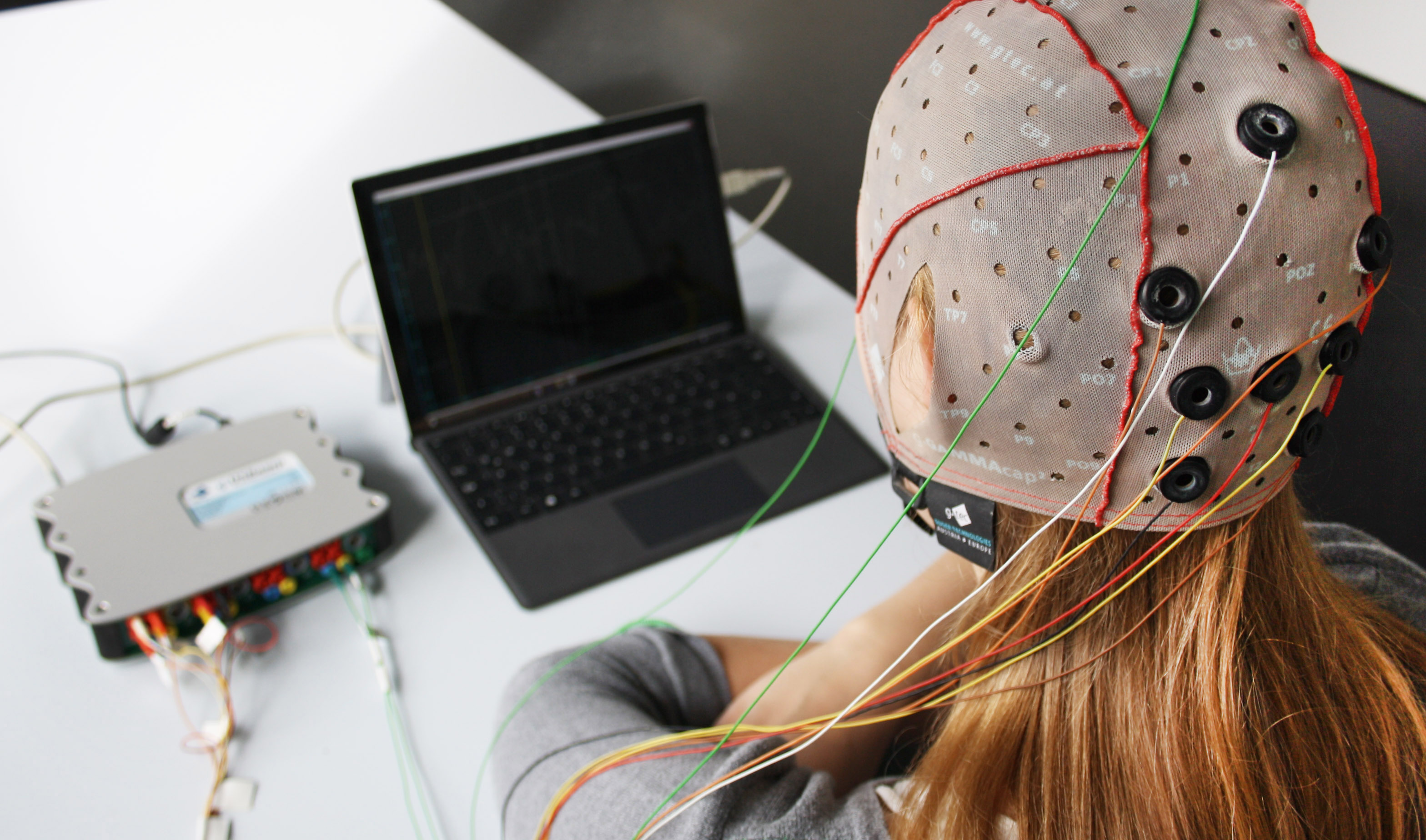Brain-computer interfaces (BCIs) are at the forefront of transforming how we interact with technology, paving the way for revolutionary advancements in neurotechnology. Among these advancements is Neuralink technology, which aims to enable individuals to control devices directly with their thoughts. This innovative field holds immense potential for applications such as aiding those with disabilities in regaining independence and improving communication. However, as the use of BCIs expands, so too do the ethical concerns surrounding brain implant ethics, the risks of mind control, and the implications for human rights and technology. It is crucial to navigate this new frontier with caution, ensuring that the benefits of BCI applications do not come at the cost of our fundamental freedoms.
The realm of neural technology, often referred to as neurointerface systems or brain-machine interfaces, offers promising potentials that could redefine human capability and communication. These innovative devices bridge the gap between human thought and digital interaction, allowing for unprecedented control over various technologies through mere neural impulses. While the applications are diverse—ranging from enhancing mobility for disabled individuals to enabling direct thought communication—the implications are profound, prompting discussions about the ethical landscape of such technologies. As we delve deeper into this field, we must consider the delicate balance between groundbreaking progress and the ethical dilemmas accompanying advancements in cognitive control and human agency.
The Promise of Brain-Computer Interfaces
Brain-computer interfaces (BCIs) are at the forefront of technological innovation, with the potential to revolutionize how individuals interact with devices and their surroundings. These systems, like the Neuralink technology, allow users to control computers or prosthetic devices using neural signals. As paralyzed patients learn to navigate digital environments or operate machinery solely through thought, BCIs promise not only to enhance quality of life but also to empower individuals who may have experienced loss of physical capabilities. Industry experts estimate that the market for BCIs could reach around $400 billion in the U.S. due to the increasing prevalence of conditions necessitating such technologies.
This burgeoning field opens new frontiers in medicine and rehabilitation. Beyond mere movement restoration, BCIs could provide avenues for direct communication with loved ones, translating thoughts into speech for those unable to speak. Researchers envision applications that extend to various settings, including healthcare, education, and entertainment. Implementing BCI technology could lead to breakthroughs in understanding human cognition and could potentially transform how society approaches assistive technologies.
Ethical Considerations in BCI Development
As excitement builds around advances in brain-computer interfaces, so do the ethical dilemmas surrounding their implementation. The rapid development of Neuralink technology raises concerns regarding brain implant ethics and the potential misuse of such devices. Historical precedents, like the MKUltra experiments conducted by the CIA, highlight the risks associated with manipulating human thought and behavior. As proposals arise to integrate BCIs into everyday life, it is critical to consider who controls this technology and to ensure that users’ rights and autonomy are safeguarded.
Moreover, there are questions about consent, privacy, and the extent to which individuals might unknowingly become subjects in a larger experiment. With governments and corporations showing interest in BCI applications, ensuring that human rights are upheld becomes paramount. Society must openly discuss and establish guidelines to navigate the thin line between beneficial therapeutic interventions and possible infringements on personal liberties, particularly when devices capable of mind control risks become readily available.
Learning from Historical Precedents: Mind Control Risks
Historically, the pursuit of mind control has led to serious ethical violations, most notably during the Cold War era. Programs like MKUltra serve as grim reminders of the potential for abuse when advanced technologies intersect with governmental or corporate interests. As the capabilities of BCIs expand, there is a tangible fear that some entities may seek to exploit these innovations for nefarious purposes, echoing past experiences. The shadows of historical psychological manipulation underscore the need for vigilance and critical evaluation of the implications tied to the deployment of such technologies.
Furthermore, the relationship between state actors and advanced neurotechnological research invites scrutiny. In the face of potential state-sponsored programs aimed at influencing human behavior through BCIs, it is essential to foster a culture where transparency and accountability are prioritized. Voices advocating for human rights and technology must collaborate to lobby against regressive policies that could arise from misuse of brain-computer interfaces in governmental or military applications.
Future Applications and Societal Impacts of BCIs
The future of brain-computer interfaces is filled with promise, but also fraught with challenges that society must navigate. As researchers aim to decode brain signals and translate them into actionable data, potential applications range from enhanced learning experiences to revolutionary advancements in psychological health treatment. The idea of reconstructing images directly from brain activity, while still in its infancy, could lead to significant breakthroughs in understanding cognition and communication, thereby fostering greater empathy and connection.
However, as the technology progresses, the societal impacts must be addressed comprehensively. A society where thoughts can be monitored or influenced raises serious privacy concerns, leading to critical discussions about mental autonomy. As BCI technology becomes integrated into various sectors, it is imperative that ethical frameworks and regulatory measures keep pace with innovation, ensuring that technological advancements serve humanity without compromising individual freedoms or rights.
Protecting Human Rights in the Age of Neurotechnology
In the landscape of rapidly advancing neurotechnology, safeguarding human rights emerges as a pivotal concern. As BCIs become more prevalent, particularly technologies from companies like Neuralink, there must be a commitment to uphold ethical principles that protect individuals from exploitation and misuse. Addressing issues of informed consent and user autonomy in deployment settings is crucial, especially in vulnerable populations that might be targeted for experimental applications.
Global standards and regulatory frameworks must evolve to address the unique challenges posed by these technologies. Ensuring that everyone has access to the benefits of BCI technologies, while also protecting against potential abuses, will require a concerted effort among policymakers, ethicists, and technologists. It is vital to engrain respect for human dignity within the fabric of BCI development, fostering a culture where innovation enhances freedom rather than compromising individuality.
Navigating Public Perception and Acceptance of BCIs
With the introduction of brain-computer interfaces, public perception plays a significant role in determining the trajectory of technology adoption. As people learn about the capabilities of devices like Neuralink’s brain chip, their understanding may be shaped by dystopian narratives highlighting the risks of mind control. Providing accurate information and fostering open dialogues around the potentials and pitfalls of BCIs is essential for societal acceptance and integration.
Educating the public about the practical applications of BCIs, such as their transformative impact on disability rehabilitation and cognitive enhancement, can help alleviate fears. Moreover, proactive engagement with communities can create a sense of ownership and cooperative development as society grapples with the implications of striking a balance between innovation and ethical responsibility. By fostering a culture of awareness and informed discourse, it will be possible to create an environment where BCIs are viewed as beneficial tools rather than threats to personal autonomy.
The Interplay Between Technology and Ethics in BCI Development
The intersection of technology and ethics in the development of brain-computer interfaces invites complex discussions. As advancements in BCI technology arise, the ethical implications surrounding privacy, consent, and user rights must not be sidelined. The pioneering efforts of Neuralink and similar enterprises necessitate a framework that addresses ethical quandaries, aligning technological progression with the well-being of humanity.
A collaborative approach between technologists, ethicists, and the public will aid in identifying and mitigating ethical concerns before they become problematic. Initiatives focused on integrating ethical training in technology development, along with clear guidelines for responsible BCI usage, will prove essential. Consistently examining the ramifications of innovations can help chart a course that not only optimizes technological potential but also preserves human dignity and rights.
The Global Competitive Landscape of BCI Technology
As countries around the world vie for supremacy in brain-computer interface development, competition influences both innovation and ethical standards. The United States, dictated primarily by corporations like Neuralink, faces pressure to remain at the forefront amid threats from other nations. This race for dominance underscores the necessity for continuous oversight of BCI technology to prevent ethical oversights from being sacrificed in the name of progress.
Moreover, international collaboration becomes imperative as advancements in neurotechnology could have far-reaching implications across global borders. Developing a united front on ethical standards concerning BCIs fosters a shared understanding of the values underpinning human rights. Coalescing around principals that prioritize mental privacy and self-determination will be vital to ensure that the next wave of technological innovation remains aligned with global ethical values.
Future Regulatory Frameworks for Neurotechnology
Designing robust regulatory frameworks for brain-computer interfaces necessitates a forward-thinking approach that accounts for both the rapid evolution of technology and the complex ethical challenges that accompany it. Establishing comprehensive guidelines will require multidisciplinary input from technologists, ethicists, policymakers, and community stakeholders to ensure that BCIs are developed and deployed responsibly. The lessons learned from historical misuse of psychological and neurotechnological advances must inform these frameworks, preventing any recurrence of past abuses.
Ultimately, future regulations must be designed to prioritize human rights while fostering an innovative environment for BCI advancements. Creating transparent processes for oversight and accountability can help mitigate fears surrounding misuse and ensure that the voices of affected communities are heard in the regulatory landscape. As neurotechnology continues to evolve, a balanced regulatory approach will be essential to harmonize innovation with public trust.
Frequently Asked Questions
What are brain-computer interfaces and how do they relate to Neuralink technology?
Brain-computer interfaces (BCIs) are advanced systems that facilitate direct communication between the brain and external devices, enabling individuals to control computers or prosthetic limbs using their thoughts. Neuralink technology, a prominent example of BCI, focuses on creating brain implants that connect neural activity to computers, thereby allowing users, like paralyzed individuals, to interact with digital environments.
What potential applications do brain-computer interfaces have in the medical field?
BCIs hold significant promise in medical applications, especially for individuals with disabilities. They may help patients control prosthetic limbs, generate speech through brain activity, and even restore movement in those with spinal cord injuries or strokes. The ongoing research and development of BCIs like Neuralink’s could revolutionize rehabilitation and assistive technologies.
What are the ethical concerns surrounding brain implant technologies like Neuralink?
The deployment of brain implant technologies raises various ethical issues, primarily concerning consent, mental privacy, and the potential for misuse. Experts warn that BCIs could lead to unauthorized data collection or manipulation of thoughts and behaviors, echoing historical abuses seen during Cold War mind control experiments.
How do mind control risks relate to the advancements in brain-computer interfaces?
As brain-computer interfaces become more sophisticated, there are increasing concerns regarding mind control risks. The potential ability to influence or alter thoughts through BCIs raises questions about individual autonomy and mental privacy, highlighting the need for robust regulations to prevent misuse and protect human rights in the realm of neurotechnology.
What are the implications of brain-computer interfaces on human rights and technology?
The advancement of brain-computer interfaces intersects significantly with human rights issues, particularly concerning mental autonomy and privacy. Technologies like Neuralink may offer life-changing benefits but must be developed with careful consideration to prevent infringement on individual rights and to ensure ethical usage of brain data.
How do brain-computer interfaces improve the quality of life for users with disabilities?
Brain-computer interfaces can greatly enhance the quality of life for users with disabilities by restoring capabilities such as movement and communication. For example, individuals with paralysis can manipulate devices or communicate through thought alone, significantly improving their independence and interaction with the world.
Are there any historical parallels to the risks associated with brain-computer interfaces?
Yes, historical parallels can be drawn between the risks of brain-computer interfaces and past government-sponsored mind control programs, such as MKUltra. These historical cases highlight the potential dangers of manipulating human behavior through technology, urging contemporary developers to prioritize ethical considerations and oversight.
What is the market potential for brain-computer interfaces in the near future?
The market potential for brain-computer interfaces is projected to be substantial, with estimates of around $400 billion in the U.S. alone. As BCIs evolve and gain acceptance in healthcare and other sectors, their applications could expand to include neuroenhancement and cognitive function improvements, further driving market growth.
What steps are being taken to address the ethical challenges of brain-computer interface technology?
To address the ethical challenges of brain-computer interface technology, researchers and advocates are calling for comprehensive regulations and ethical guidelines. These frameworks aim to protect individuals’ rights, ensure informed consent, and mitigate risks of misuse while promoting safe and beneficial advancements in neurotechnology.
How does Neuralink’s brain chip implant work and what are its benefits?
Neuralink’s brain chip implant functions by recording and interpreting neural signals, allowing users to control computers or devices with their mind. The benefits of this technology include enhanced communication for individuals with mobility impairments and the potential to develop new therapeutic modalities for neurological conditions, significantly improving users’ quality of life.
| Key Points | Details |
|---|---|
| Introduction to BCIs | Brain-computer interfaces (BCIs) represent a transformative technology that allows direct communication between the brain and external devices. |
| First Human BCI Implant | Noland Arbaugh received the first BCI implant from Neuralink, enabling him to control devices with his thoughts. |
| Market Potential | The BCI market is estimated to be around $400 billion in the U.S., with applications for disabilities. |
| Cautions from History | A recent paper links BCIs to historical mind-control experiments, warning of potential misuse by state or private entities. |
| Examples of Past Abuse | References to MKUltra highlight dangerous past experiments aimed at controlling behavior and consciousness. |
| Ethical Implications | The use of BCIs raises concerns about self-determination, consent, and mental privacy. |
| Continued Development | Despite risks, there is a push for further development of BCIs to remain ahead of potential adversaries. |
Summary
Brain-computer interfaces (BCIs) are a groundbreaking technology that offers significant opportunities for enhancing the lives of individuals with disabilities. However, they also raise important ethical concerns, particularly regarding potential misuse in the context of mind control and behavioral manipulation. As we develop these technologies, it is crucial to learn from past mistakes to ensure BCIs are used responsibly and ethically, adhering to the principles of consent and mental privacy.



